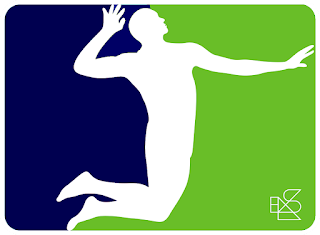Three Dimensional Coach Development (3DCD)
I recently wrote a post called Maslow's Hierarchy of Coaching Needs and received some feedback to expand on the post. The irony is that I actually started this post prior to that one, but went with Maslow's because it simplified things a great deal, and I find these types of posts get more traction.
Except, things aren't simple.
Coach development and athlete development (and many other things) are extremely complex and defy most attempts to force them into simplistic diagrams.
Having said that - here is another model which attempts to make sense of longitudinal development in sport and put it into a simplistic diagram!
The 3DAD model of athlete development1 stands for the 3D Athlete Development model. The model is an attempt to represent that athletes need different things at different times of their development. For example, there are times when physical development is more important, there are times when technical development are more important and there are times when competition is more important. This is not too say that when competition is most important, nothing else is important, it is to say the relative importances change, and also, different things come and go throughout.
So to loop back to Maslow's, we identified that there are 4 distinct areas of coach development which are sequential not because they necessarily HAVE to be, but because most coaches perceive their needs in a particular area to be sufficient before they fully focus on the next area:
- Technical
- includes basic skill and techniques required, as well as drills and basic training session management
- Tactical
- coaches start to develop an understanding that the technique requires context in competition, and that trainings need to teach this too
- Sports Science and Sports Medicine
- a very broad term indicating the coach's desire to be more systematic and evidence based in their coaching, as well as recognising there is expertise in other areas that they do not have. For example, nutrition, group dynamics, adolescent psycho-social development, physical development, and others
- please note, his is not about knowing these other things exist and bringing in an expert to run it, it is about the coach engaging in learning about how to incorporate these various different aspects into THEIR programme. For example, I knew for a long time that strength and condition is important, I implemented programmes, I knew all the theory, but it took 20 years of coaching until I really engaged with it
- Coaching Skills
- the final stage where the coach understand the various aspects listed above, and focusses on becoming better at combining them all for the benefit of their athletes and teams. What I call, 'Coaching Skills' which is largely, the ability to change the behaviour human beings, and human beings don't like change!
Lastly, as a coach developer, it is wise to avoid forcing coaches to do things they are not ready to do, you are better off filling their cup and inspiring them to be curious about what else they can develop.
(Photo Credit)



Comments
Post a Comment